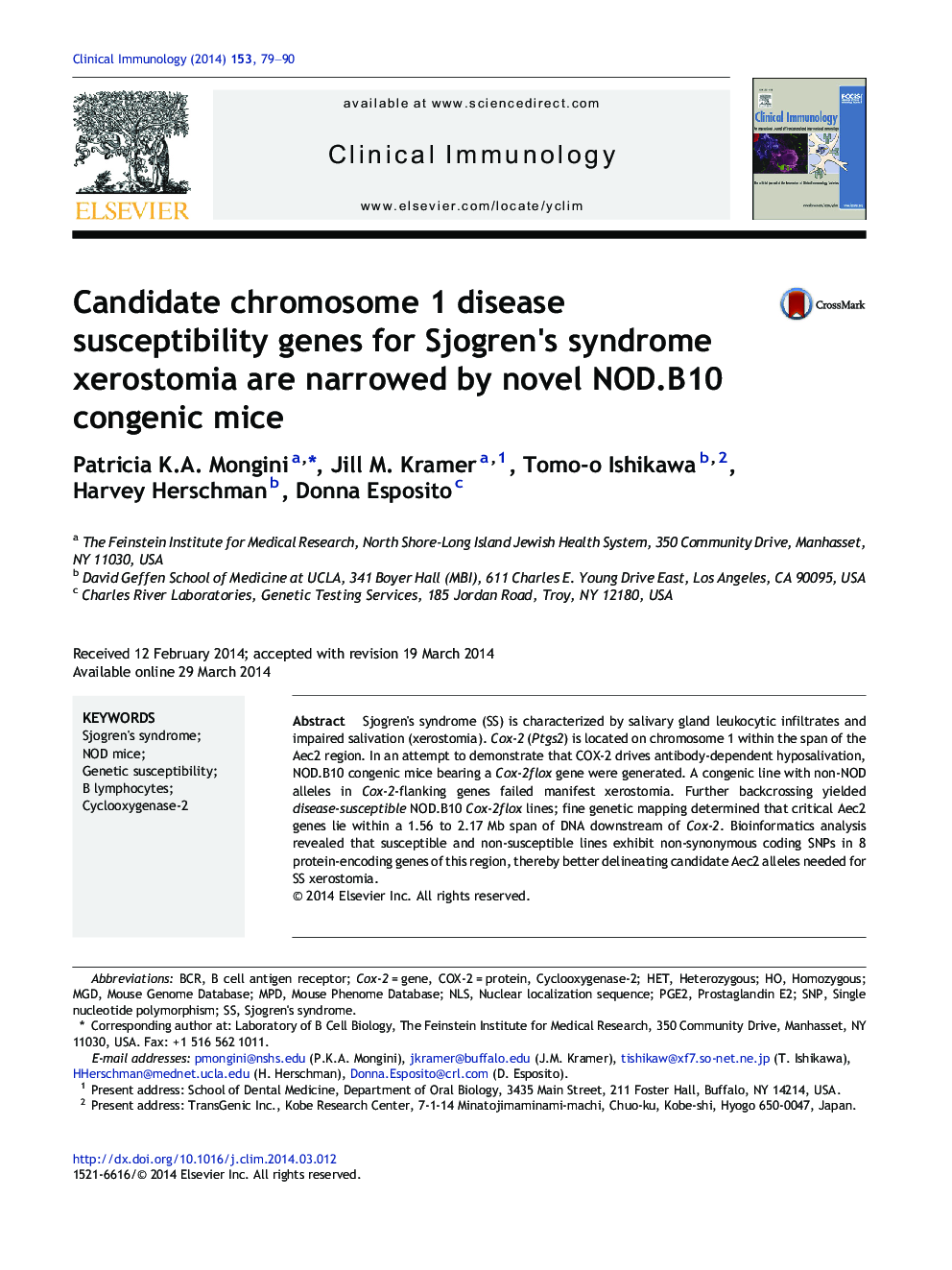| کد مقاله | کد نشریه | سال انتشار | مقاله انگلیسی | نسخه تمام متن |
|---|---|---|---|---|
| 6087460 | 1207365 | 2014 | 12 صفحه PDF | دانلود رایگان |

• SS-susceptible NOD.B10 mice with a floxed Cox2 (Ptgs2) gene in Chr 1 are identified.
• Candidate Chr 1 Aec2 genes affecting SS hyposalivation (xerostomia) are narrowed.
• Susceptibility alleles are downstream of Ptgs2 and within a 1.56 to 2.17 Mb span of DNA.
• Narrowed Aec2 span contains 8 genes with non-synonymous coding SNPs.
• The latter genes encode proteins with roles in immunity and cell proliferation.
Sjogren's syndrome (SS) is characterized by salivary gland leukocytic infiltrates and impaired salivation (xerostomia). Cox-2 (Ptgs2) is located on chromosome 1 within the span of the Aec2 region. In an attempt to demonstrate that COX-2 drives antibody-dependent hyposalivation, NOD.B10 congenic mice bearing a Cox-2flox gene were generated. A congenic line with non-NOD alleles in Cox-2-flanking genes failed manifest xerostomia. Further backcrossing yielded disease-susceptible NOD.B10 Cox-2flox lines; fine genetic mapping determined that critical Aec2 genes lie within a 1.56 to 2.17 Mb span of DNA downstream of Cox-2. Bioinformatics analysis revealed that susceptible and non-susceptible lines exhibit non-synonymous coding SNPs in 8 protein-encoding genes of this region, thereby better delineating candidate Aec2 alleles needed for SS xerostomia.
Journal: Clinical Immunology - Volume 153, Issue 1, July 2014, Pages 79–90